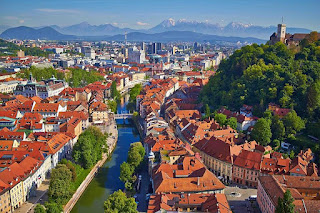
Capital city of Slovenia
The Supreme Court has ruled that Slovenia must allow a Cameroonian asylum seeker who was deported from Slovenia twice to enter the country and request asylum status in what is a landmark decision. The Cameroonian is currently in Bosnia-Herzegovina. The court’s decision is final and no appeals are possible, the daily Dnevnik reported on Saturday.
The Slovenian police, which unlawfully deported the Cameroonian to Croatia twice in 2019, and the Interior Ministry must allow him to return to request international protection, the court decided in a landmark ruling that change “the rules of the game” in processing migrants on the southern border, Dnevnik said.
The Cameroonian is entitled to applying for asylum as he had left his country to flee persecution as a victim of an ethnic conflict
This comes after the Administrative Court sided with an appeal by him in 2020. Apart from ruling that he must be allowed to return to seek asylum, the Administrative Court also decided that Slovenia must pay him compensation of EUR 5,000.
The decision was then appealed by the ministry, which now no longer has the option to do so since the Supreme Court upheld the ruling.
The decision was then appealed by the ministry, which now no longer has the option to do so since the Supreme Court upheld the ruling.
When it comes to the compensation, the Supreme Court has not made any decision but instead urged the Cameroonian to file a separate compensation lawsuit.
The Supreme Court’s ruling was handed down in April. The InfoKolpa civil initiative, which has been providing legal protection for the Cameroonian, has warned that the ministry has not wanted to implement the ruling for the past four months.
In line with the court’s decision, Slovenia should issue a travel permit to the Cameroonian so that he could arrive at the Slovenian border without any legal issues, however the ministry does not want to do this, InfoKolpa said, adding that this could be sorted out the same way it had been sorted out recently in the case of an Afghan who had helped the Slovenian army and his family.
The Cameroonian’s counsel Dino Bauk said that his client “is still trapped in Bosnia-Herzegovina where his basic human rights continue to be violated”.
After he learned of the court’s decision, the Cameroonian is said to have attempted to arrive at the Slovenian border by himself a number of times, but always in vain, according to Dnevnik.
The paper addressed a number of relevant questions to the ministry and police. The police responded by saying that it had been notified of the ruling and it “forwarded information about the implementation of the ruling via a law firm which represented the foreigner”.
Dnevnik reported that Police Commissioner Anton Olaj had said that the Cameroonian may report to any Slovenian border crossing.






No comments:
Post a Comment